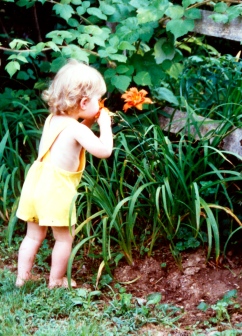Rebecca Solnit from Ploughshares, May 2016: “We live in a time when …purveyors of conventional wisdom like to report on the future more than the past. They draw on polls and false analogies to announce what is going to happen next, and their frequent errors… don’t seem to impede their habit of prophecy or our willingness to abide them. ‘We don’t actually know’ is their least favorite thing to report.” [My italics.]
I am the sort of reader who loves to hear experts announce “We don’t actually know.” But I recognize I am in the minority–in this respect–in my culture. That most Americans are willing to abide such speculative prophecies worries me a bit, and I do what I can in the classroom to waken my students to the possibility of erroneous thinking, even on the part of supposed experts and aggregate sources.
Yes, once again I am teaching argument to freshmen…the classic example of what Solnit calls naïve cynics:
Non-pundits, too, use bad data and worse analysis to pronounce with great certainty on future inevitabilities, present impossibilities, and past failures. The mind-set behind these statements is what I call naïve cynicism. It bleeds the sense of possibility and maybe the sense of responsibility out of people.
Maybe it also says something about the tendency to oversimplify. If simplification means reducing things to their essentials, oversimplification tosses aside the essential as well. It is a relentless pursuit of certainty and clarity in a world that generally offers neither, a desire to shove nuances and complexities into clear-cut binaries. Naïve cynicism concerns me because it flattens out the past and the future, and because it reduces the motivation to participate in public life, public discourse, and even intelligent conversation that distinguishes shades of gray, ambiguities and ambivalences, uncertainties, unknowns, and opportunities.
Scholarly argument should ideally create discourse, not embattled absolutism on things that cannot ever be “proven.” In fact, I have forbidden my students to employ the word “prove” (or any of its conjugations) in their argument papers. They know my rationale for this lexical excision; I also warn them away from “always,” “never,” and “everyone.” But they are not yet experienced enough critical thinkers to recognize that my practice is also to encourage research and nuance, to shove them (gently) out of their naïve cynicism into the world of no-easy-answers, no-slippery-slope-thinking; a world of wonderfully complex ambiguities waiting to be more fully explored.
I think of my oldest child who, many years ago, was insistent on knowing ahead of time how everything was going to turn out: “Does the movie have a happy ending?” “Does the Little Red Hen get anyone to help make her bread?” “Can I win this game?”
Raising a child who is temperamentally anxious requires a form of parenting that offers comfort but admits to unknowingness. (Next up on my reading list: America the Anxious, by Ruth Whippman!) Solnit says the alternative to naïve cynicism is “an active response to what arises, a recognition that we often don’t know what is going to happen ahead of time, and an acceptance that whatever takes place will usually be a mixture of blessings and curses.”
I don’t think I have ever heard a more accurate description of what being a human entails.